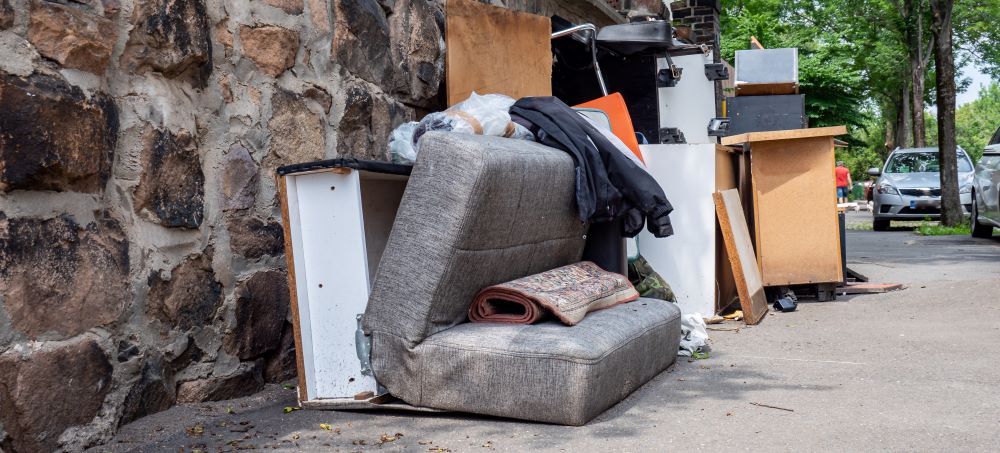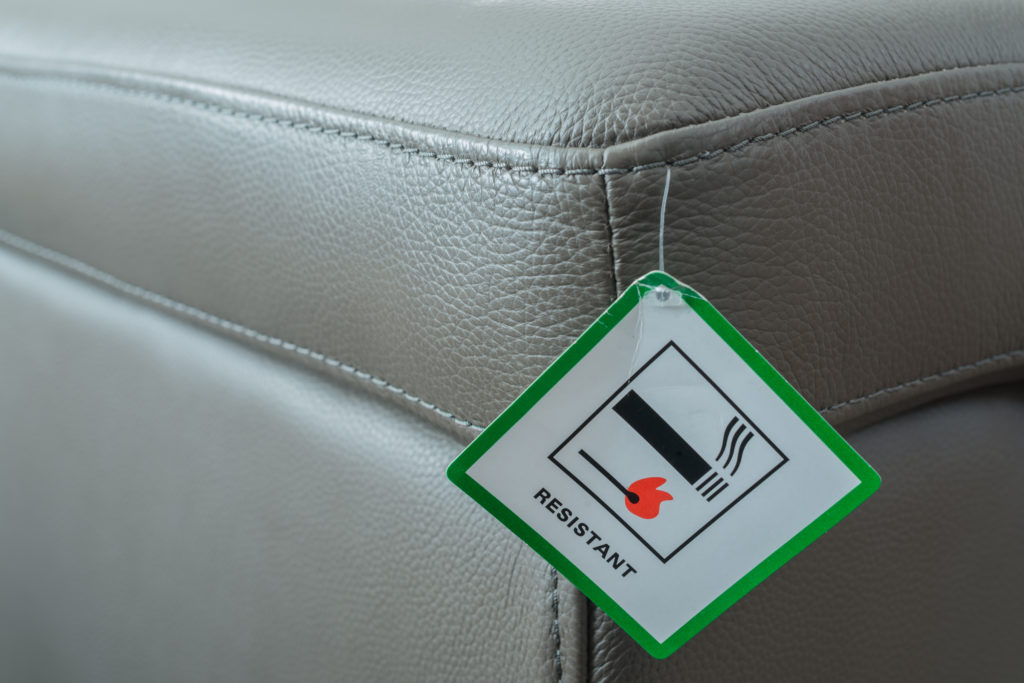Councils have expressed confusion at the guidance and say they will be unable to implement the required changes in time, particularly for bulky waste collections if soft furnishings must be separated from other streams.
Meanwhile, some energy from waste (EfW) plants will need time to install the correct shredders at plants to process the material, raising concerns about sufficient treatment capacity for upholstered waste domestic seating in the meantime.
Letter
As revealed by letsrecycle.com last week, councils were warned in a letter that, effective immediately, waste upholstered domestic seating containing persistent organic pollutants (POPs) must not be landfilled, mixed with other non-POPs-containing wastes, reused or recycled (see letsrecycle.com story).
In a letter sent to local authorities, the Agency explained that all councils must review procedures to ensure they are compliant and outline the steps they have taken in writing before the end of 2022.
An assessment of compliance across the sector will take place from 1 January 2023. The Agency warned it will then “consider our response to any noncompliance we find”.
RPS
However, that the guidance is effective immediately and there is a requirement to comply by 1 January next year has caused concern and been described as “unrealistic and nearly impossible”.

On local authority expert told letsrecycle.com that they are pushing for a regulatory position statement (RPS), in a similar way to that seen with the waste wood classification project. This would allow local authorities to continue current methods while more work and research is undertaken.
They said: “There is a feeling that local authorities, although represented in the discussions leading up to this decision, were under a non-disclosure understanding.
“We would like to see a phased-in approach, possible via an RPS, to allow us the time to examine how we can implement this and the thresholds.
“The main issue is the fact that for bulky waste collections, if soft furnishings are so much as in a van with other items, the entire vanload now has to be sent for incineration and that would cost us a lot.
“This means we would have to have specific days to collect soft furnishings separately, and more Luton vans would be needed to, and the lead-in time on these alone is up to 12 months at the moment.
“A similar situation will happen for mixed waste skips on household waste recycling centre sites, where the only solution will be more skips to enable separation but with problems for site space and safe movement of vehicles and people.”
Logistics
Cathy Cook, chair of the Local Authority Recycling Advisory Committee (LARAC) told letsrecycle.com the introduction of the legislation meant local authorities faced “enormous logistical challenges” to implement the guidance.

This includes the potential purchase and provision of separate vehicles, the impact on transfer stations and the issues arising from additional inspections of goods delivered to HWRCs.
She added that LARAC understood the “reasoning” behind the introduction of legislation around items containing POPs, but said: “Local authorities are extremely concerned that they won’t be able to meet these requirements within the challenging timescales that have been set.”
Discussions
Since the letter was sent, a series of “high-level” discussions have taken place between the government and senior waste industry members.

When the regulations were first mooted last year, there was general consensus that only around 30% of material would be affected. There has been some shock at the breadth of the latest guidance.
The Environmental Services Association (ESA) is one of the groups in contact with the Environment Agency. Its head of regulation, Sam Corp, explained that concerns have been raised about the capacity of the UK’s infrastructure to deal with this additional waste stream.
He noted that larger items like sofas and armchairs will have to be shredded or dismantled before being treated at an EfW facility, “most of which do not have onsite facilities or space to conduct this sensitive operation, which itself must be closely contained to ensure POPs do not escape to the environment.”
This, according to Mr Corp, will “necessitate investment in and permitting for new infrastructure, which will take time and require regulatory pragmatism in the meantime.”
UK-wide
The Environment Agency reasoned in its letter that the UK has committed to manage waste containing POPs in a way that prevents harmful environmental “impacts” from occurring via the Stockholm Convention.
We are aware of the Environment Agency letter
- Natural Resources Wales
While Scotland has indicated that it will follow the Agency’s lead, further to more investigating, in Wales the picture is less clear.
The country’s regulator, Natural Resources Wales, said it was asking councils to continue with existing waste regulations, not those specified in the Agency’s letter.
A spokesperson said: “We are aware of the Environment Agency letter and we have been in contact with Welsh local authorities to state that they need to comply with existing waste regulation including correctly managing waste containing or potentially containing persistent organic pollutants correctly.
“We are assessing the impact on local authorities and other producers of this waste in Wales.”
The Northern Irish Department of Agriculture, Environment and Rural Affairs has not yet indicated its position.












Subscribe for free